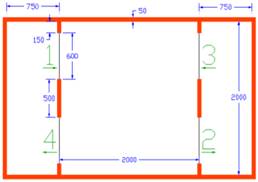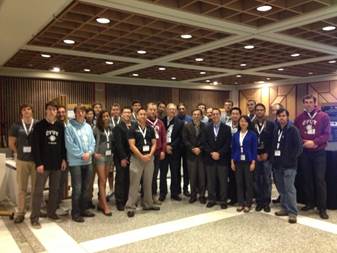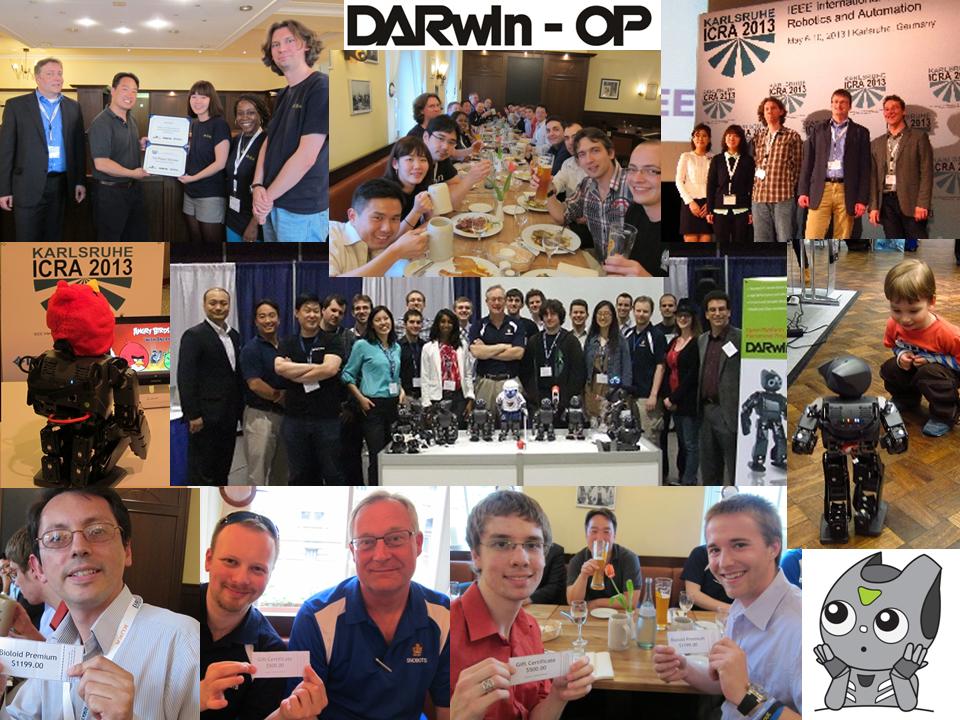2014 IEEE International Conference on Robotics and Automation (ICRA 2014)May 31 - June 7, 2014 Hong Kong, China |

 |

2014 IEEE International Conference on Robotics and Automation (ICRA 2014)May 31 - June 7, 2014 Hong Kong, China |

 |

This year's edition of the ICRA Robot Challenge will be held at ICRA 2014 in Hong Kong, China. Our goal is to make the Challenge accessible to all members of the ICRA community, to integrate it tightly with the technical aspects of the conference, and to encourage as many participants as possible to bring their teams and participate.
Each challenge is organized individually, but all will be co-located at the conference. To participate in any of the challenges, contact the corresponding organizers.
|
According to the UN Mine Action Service, landmines kill 15,000–20,000 people every year (mostly children) and maim countless more across 78 countries. Demining efforts cost US$ 300–1000 per mine, and, for every 5000 mines
cleared, one person is killed and two are injured. Thus, clearing post-combat regions of landmines has proven to be a
difficult, risky, dangerous and expensive task with enormous social implications for civilians. Motivated by these
considerations, the IEEE Robotics & Automation Society – Special Interest Group on Humanitarian Technology
(RAS–SIGHT) is inviting the academic and non-academic community to participate in the first Humanitarian
Robotics and Automation Technology Challenge (HRATC) at the 2014 International Conference on Robotics and
Automation (ICRA’14). This edition will focus on promoting the development of new strategies for autonomous landmine detection using a mobile (ground) robot. These strategies will be evaluated according to the following criteria: exploration time and environmental coverage; detection and classification quality, i.e., when a metallic object is detected, it should be classified correctly as a landmine or non-landmine; landmine avoidance, i.e., while navigating, the robot should not go over landmines. For more details on how to participate in the Challenge and deadlines, please go to https://www.isr.uc.pt/HRATC2014 or download the Call for Participation flyer. |

|
Microrobots are envisaged to be useful in many future applications such as nanomanufacturing, exploration of human body for medical care, inspection of small structures, as well as millitary surveillance. Microrobots for this competition utilize Micro Electro Mechanical System (MEMS) technology, and are actuated using advanced control systems. The MMC seeks to realize common frameworks for experimental comparison by all participants for shared use in publishing results and understanding relative strengths and shortcomings.
The first MMC competition was held in 2007 with the name Robocup Nanogram under sponsorship from the US National Institute of Standard and Technology (NIST). A dozen teams designed and fabricated micrometer scale robots that can be powered and controlled without wires. The MMC has been held at ICRA every year since 2010, and calls for competition with microrobots that must fit within a 500 µm diameter sphere. Teams must qualify for the challenge by sending a proposal and also demonstrating basic maneuverability of their robots ahead of the competition. They must travel with their own equipment, set it up and competed over the period of 3 days in events that include:


In 2013, NIST delegated responsibility for the organization of the MMC to the IEEE Robotics and Automation Society, and the IEEE-Sponsored challenge was held at ICRA 2013 in Karlsruhe, Germany led by a committee representing the Micro-Nano Robotics TC of IEEE-RAS (Figure 2) . This year, the MMC will be held in Hong Kong at ICRA 2014 between May 31 and June 2, 2014. Events include the mobility and microassembly challenges, but the emphasis is on increased programming flexibility and autonomous capabilities for microrobots. Complete Rules are posted online at https://www.uta.edu/ee/ngs/mmc, while contact email for the organizing committee is RAS_MMC_Organizers@googlegroups.com.


DARwIn-OP is an open platform humanoid project supported by NSF. Being a vision-capable humanoid with full functionality and scalability, researchers are strongly required to join an open source community for cooperative research. (https://www.robotsource.org/) To encourage creative applications from around the globe and maximize contribution for humanoid research.
For more information or questions, please
visit the website
https://www.robotis.com/xe/?mid=news_en&document_srl=668457 or contact Aimee Han at
Aimee@robotis.com OR
contactus2@robotis.com.